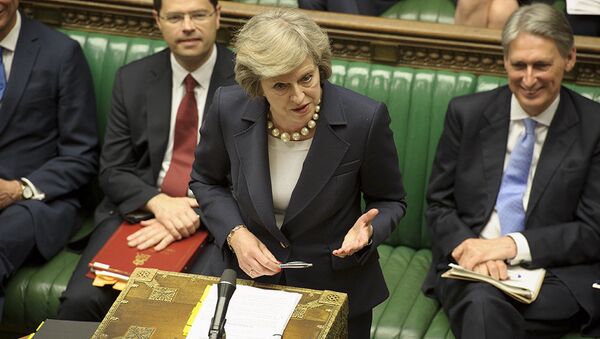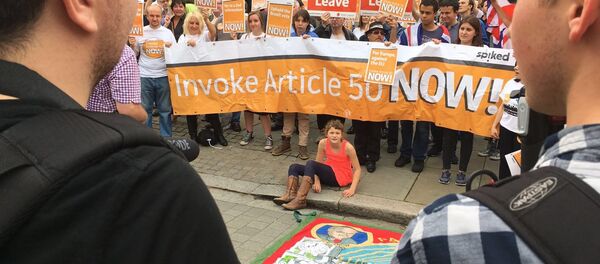If the High Court decides that Parliament is needed in order to trigger Article 50, then it could lead to an overturning of the referendum results. According to those who voted "Leave," Parliamentary sovereignty is not needed.
Three quarters of MPs backed the campaign to remain in the European Union, therefore, if it is Parliament's responsibility to trigger Article 50, then Brexit could be blocked by having MPs voting against it.
The public thinks that the Prime Minister, not Parliament, should have the final say on invoking Article 50 https://t.co/VzpQdKVkcn pic.twitter.com/DzqiXk429Y
— YouGov (@YouGov) 16 October 2016
So the question arises — who should invoke Article 50, the Prime Minister or Parliament?
New research from YouGov shows that the majority of the UK public believe the decision on Article 50 should ultimately lie with the prime minister, with 54 percent saying that PM Theresa May should trigger Article 50 as opposed to 30 percent saying that the power to activate it belongs to Parliament. 17 percent were unsure and didn't know who should invoke Article 50.
The research also uncovered that those groups who wanted the PM to make the decision also backed Brexit during the referendum. However, those who wanted Parliament to be responsible, tended to belong to the "Remain" camp.
Theresa May insists there will be no vote on when to trigger #Article50 #PMQs — here's why she's wrong https://t.co/ywH895E8UN
— New Europeans (@NewEuropeans) October 12, 2016
There is however a group of people who didn't follow the trend: 25 to 49 year-olds, the middle class, the Liberal Democrats and Scots were groups that tended to favor remaining in the UK, but when it comes to triggering Article 50, they believe it is the PM's decision to make.
Whether the PM or Parliament should trigger Article 50 is up for debate, however the general consensus from the British people favors the prime minister's ultimate responsibility to do so. However what shall be decided by the High Court remains to be seen.



